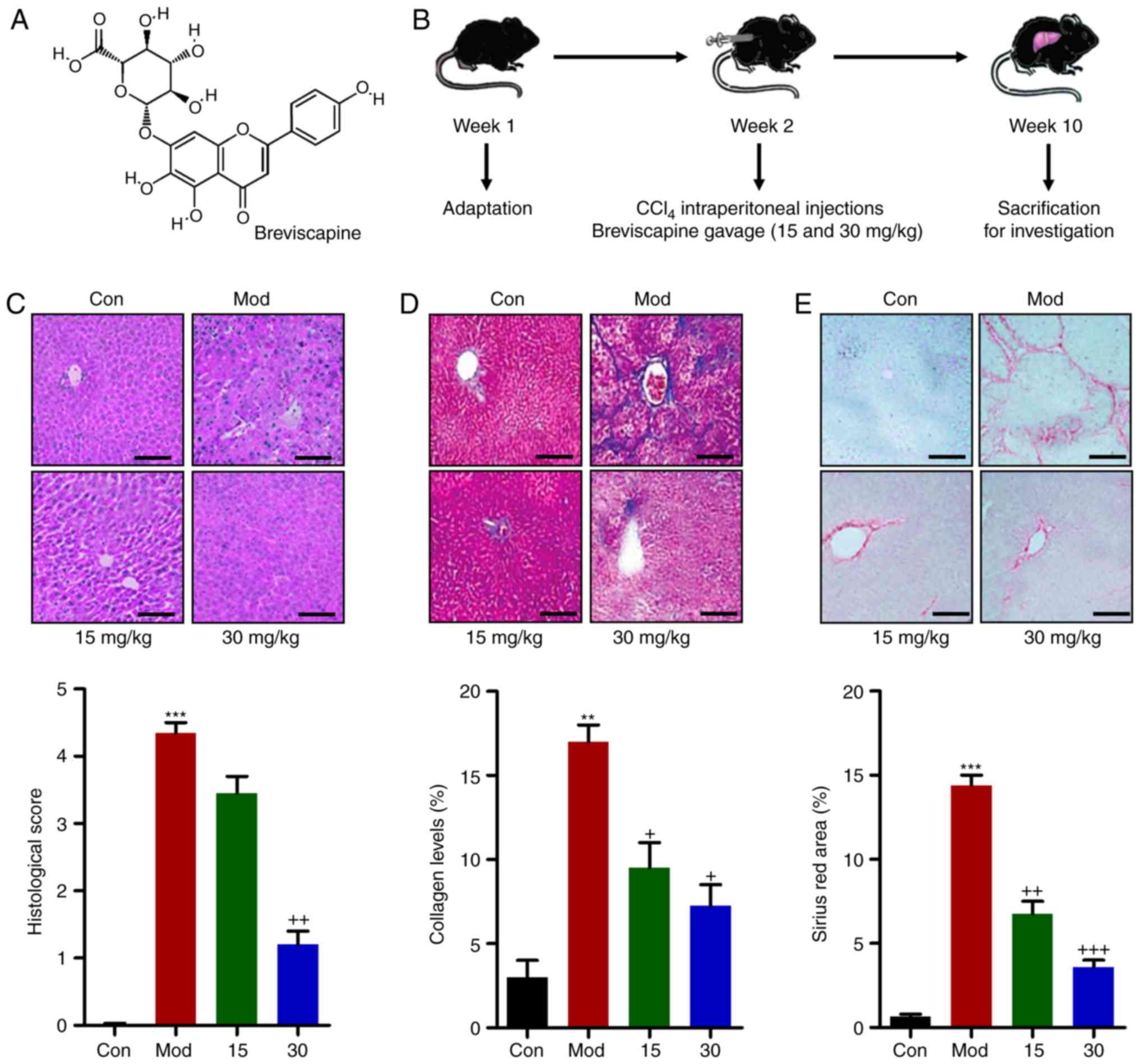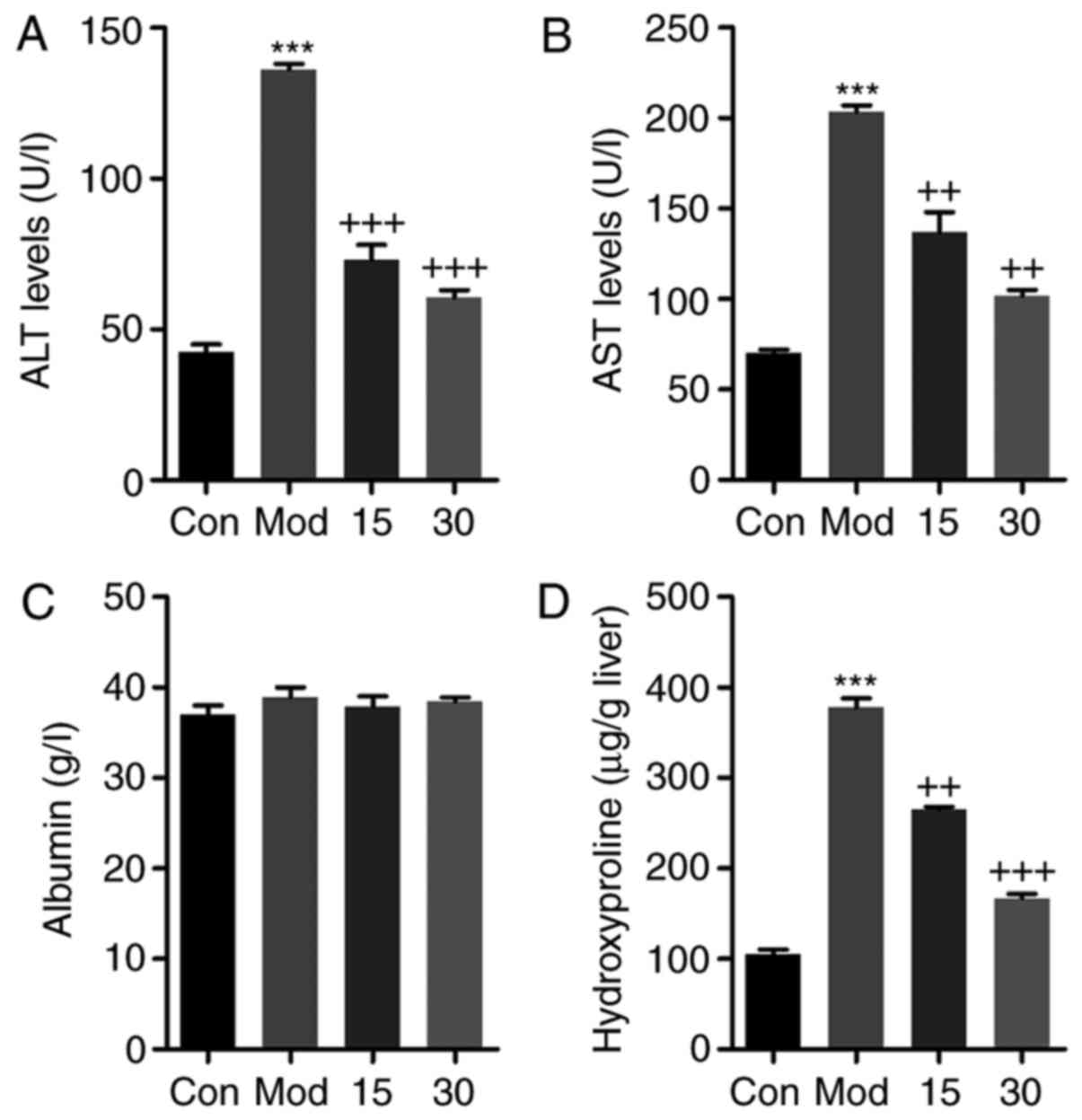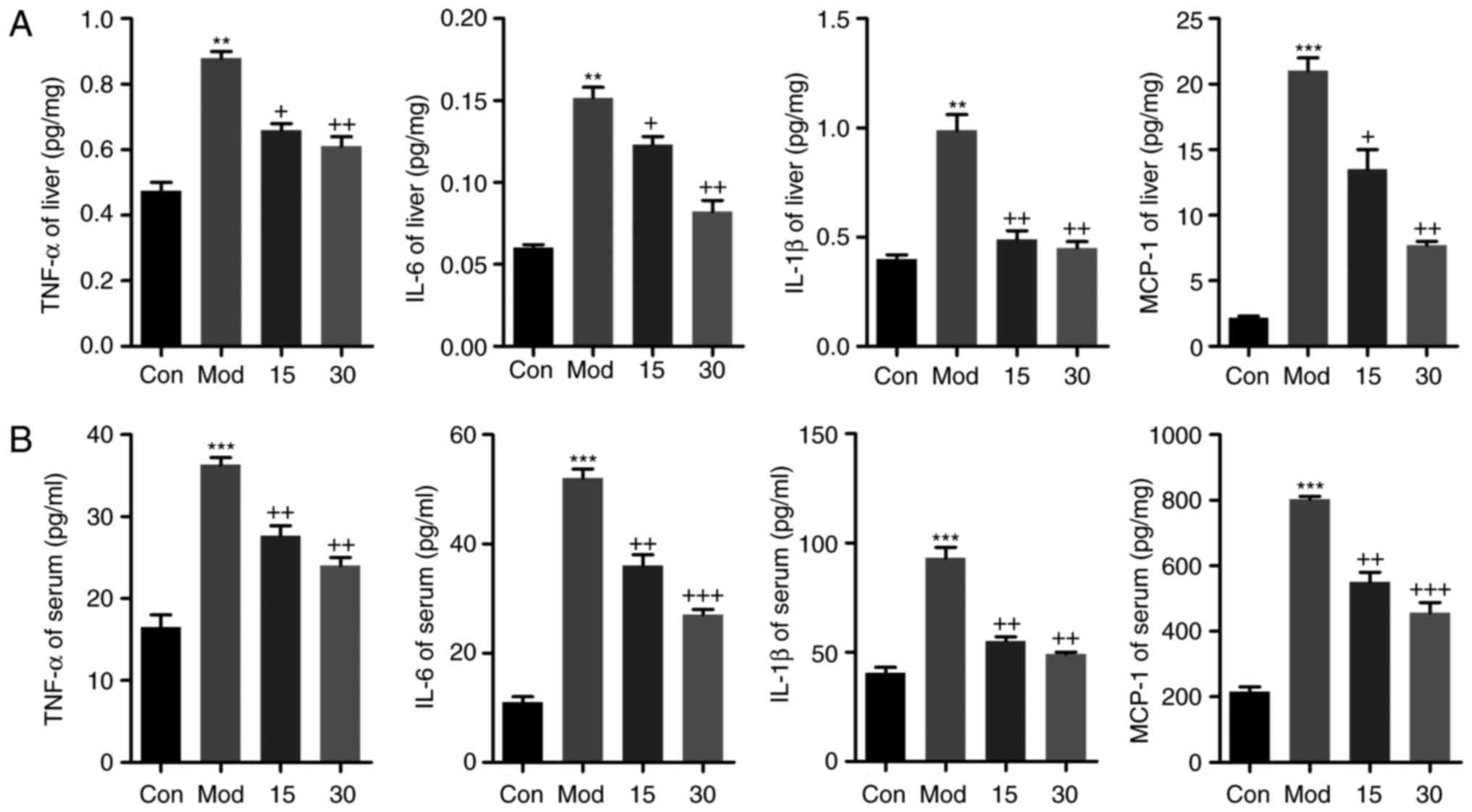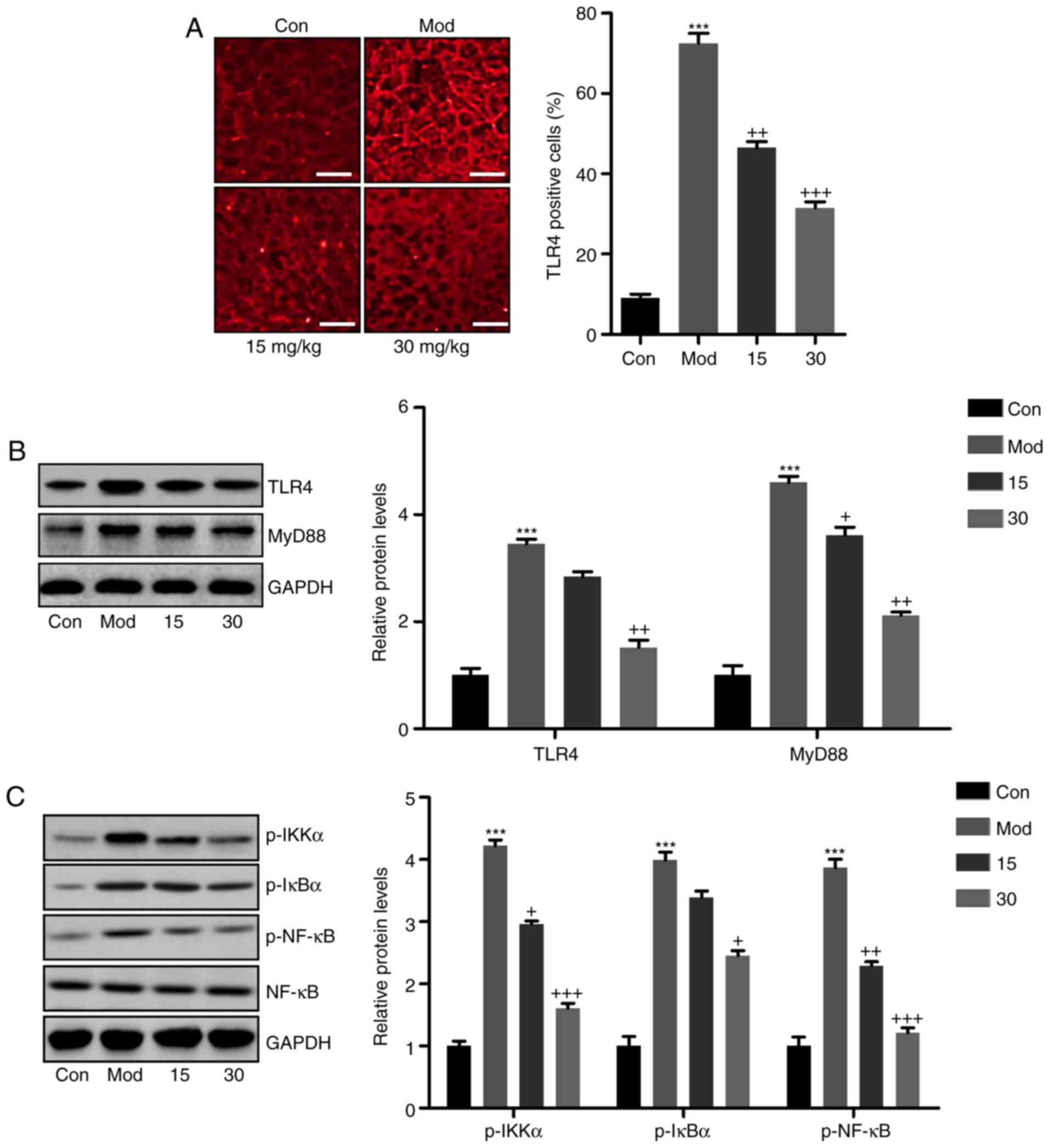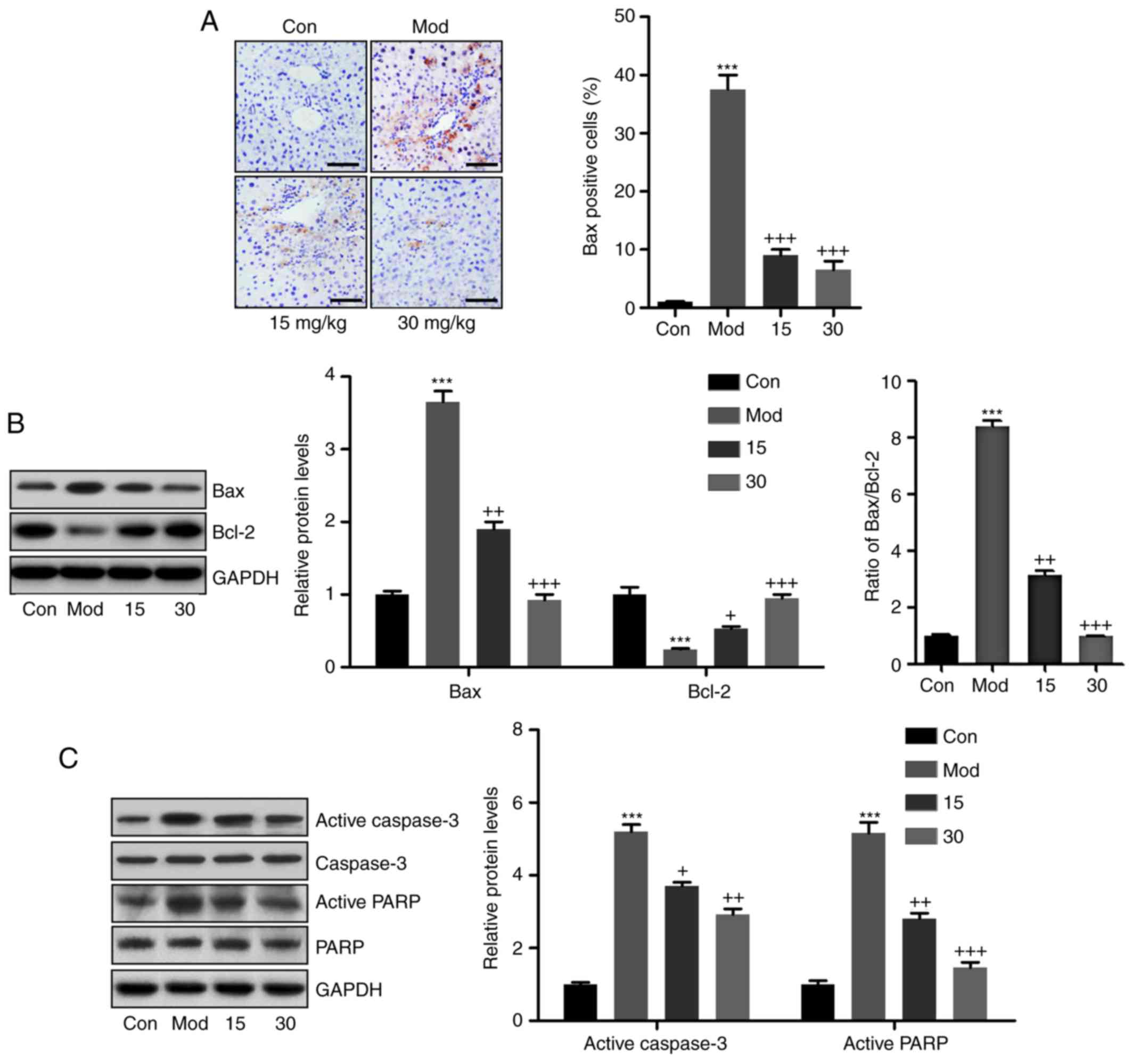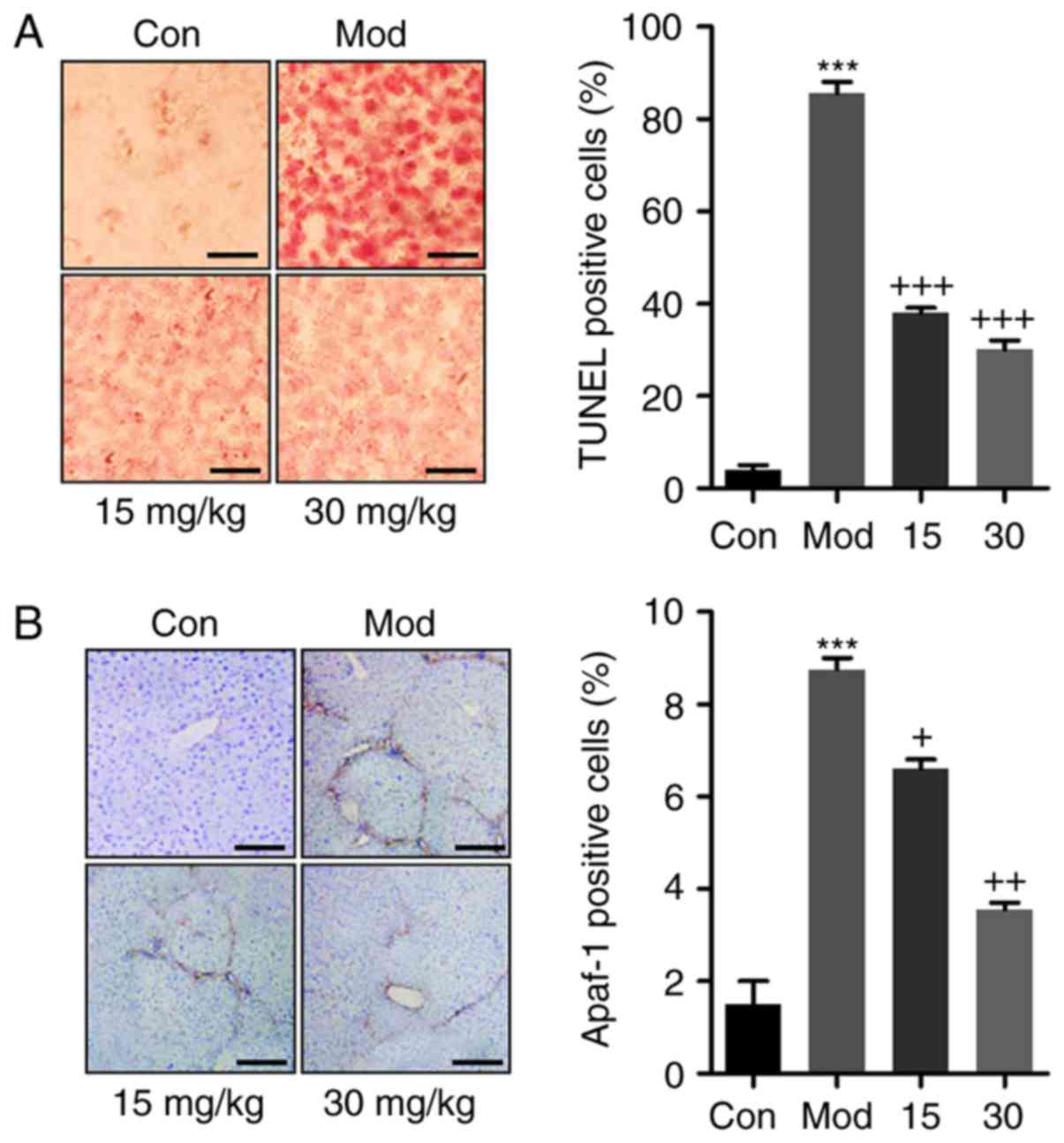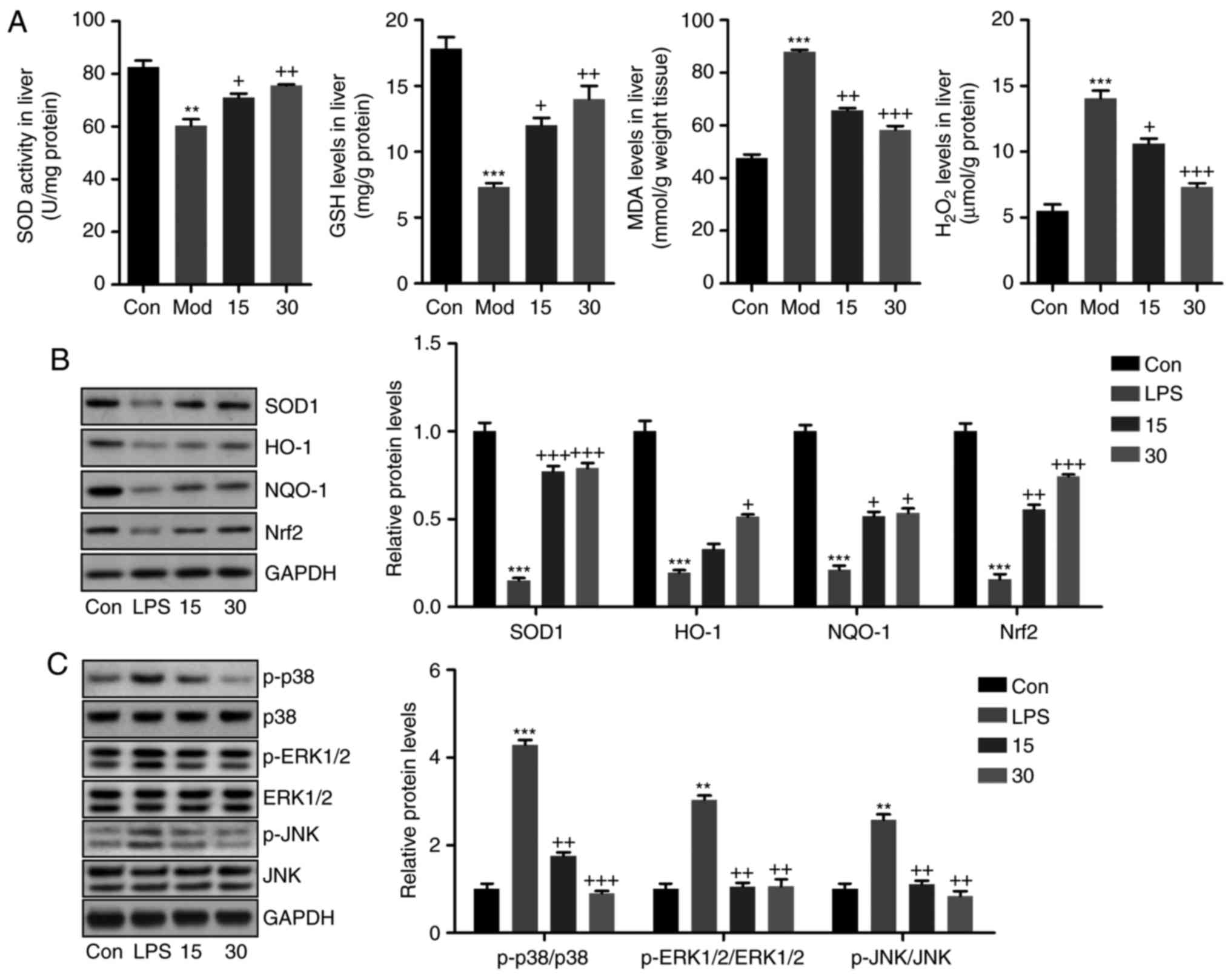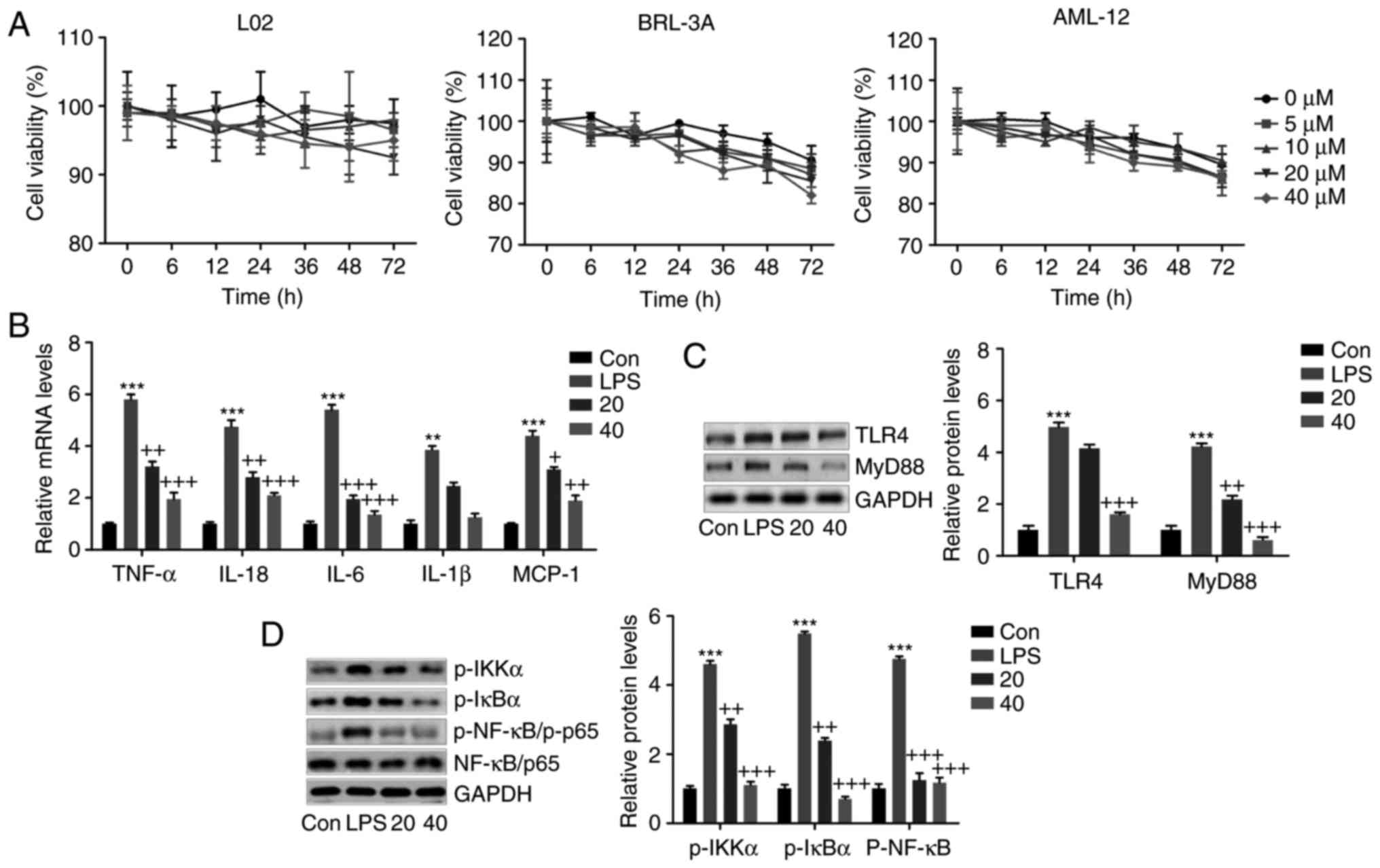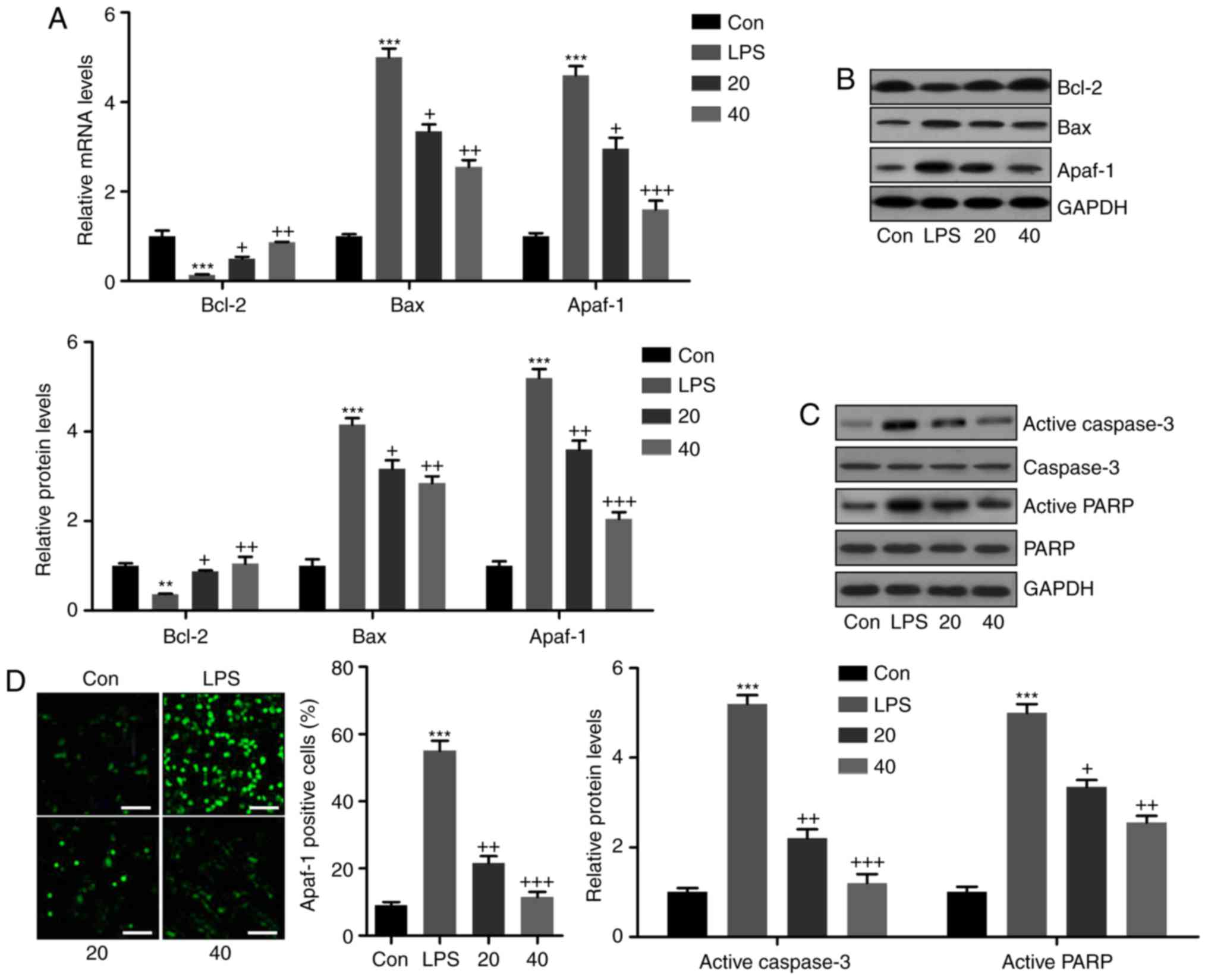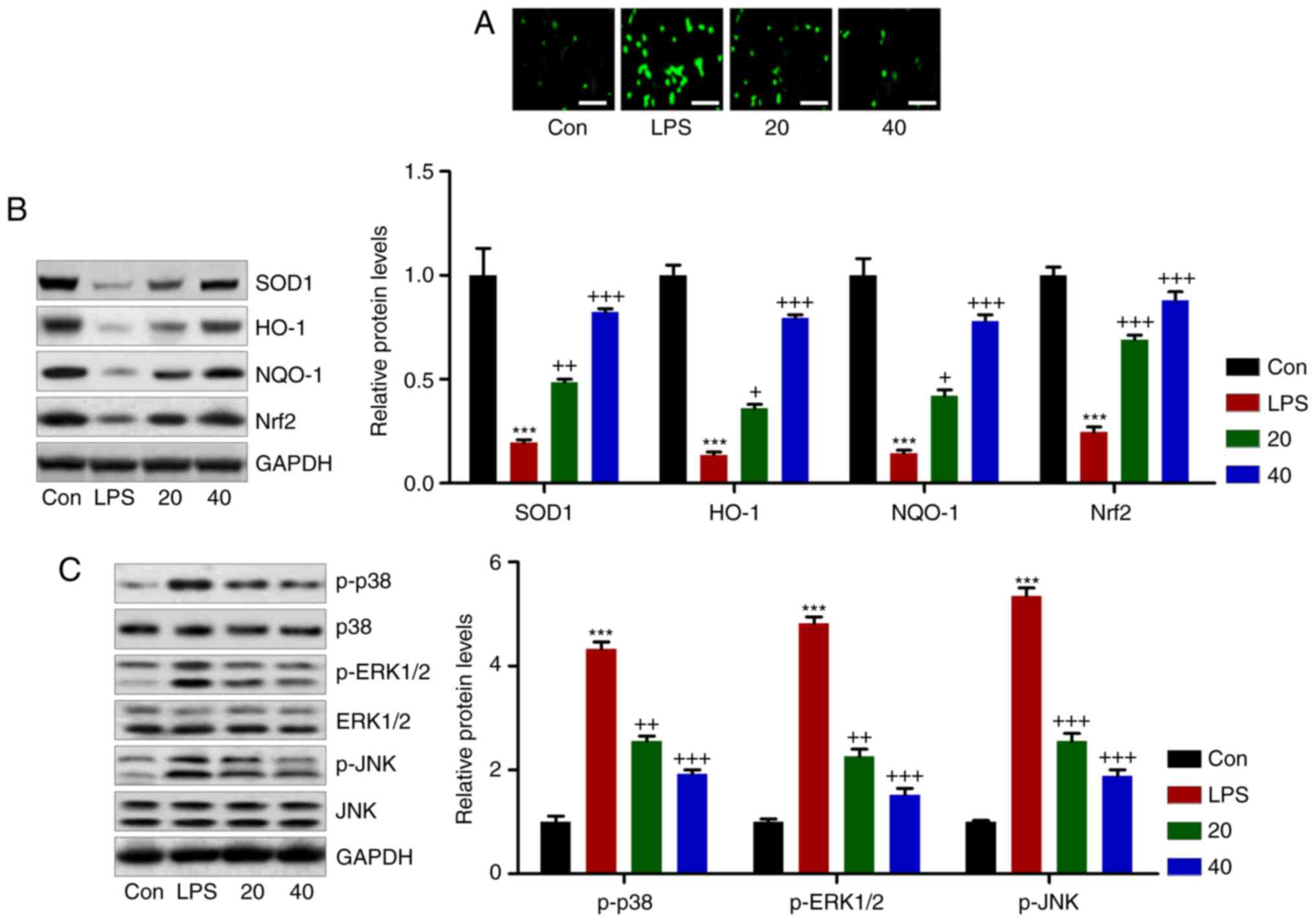|
1
|
Rowland A, Miners JO and Mackenzie PI: The
UDP-glucuronosyltransferases: Their role in drug metabolism and
detoxification. Int J Biochem Cell Biol. 45:1121–1132. 2013.
View Article : Google Scholar : PubMed/NCBI
|
|
2
|
Mao S, Gao D, Liu W, Wei H and Lin JM:
Imitation of drug metabolism in human liver and cytotoxicity assay
using a micro-fluidic device coupled to mass spectrometric
detection. Lab Chip. 12:219–226. 2012. View Article : Google Scholar
|
|
3
|
Dawson S, Stahl S, Paul N, Barber J and
Kenna JG: In vitro inhibition of the bile salt export pump
correlates with risk of cholestatic drug-induced liver injury in
humans. Drug Metab Dispos. 40:130–138. 2012. View Article : Google Scholar
|
|
4
|
Huang HL, Wang YJ, Zhang QY, Liu B, Wang
FY, Li JJ and Zhu RZ: Hepatoprotective effects of baicalein against
CCl4-induced acute liver injury in mice. World J
Gastroenterol. 18:6605–6613. 2012. View Article : Google Scholar : PubMed/NCBI
|
|
5
|
Chen X, Meng Q, Wang C, Liu Q, Sun H, Huo
X, Sun P, Yang X, Peng J and Liu K: Protective effects of calycosin
against CCl4-induced liver injury with activation of FXR
and STAT3 in mice. Pharm Res. 32:538–548. 2015. View Article : Google Scholar
|
|
6
|
Chen X, Gong X, Jiang R, Wang B, Kuang G,
Li K and Wan J: Resolvin D1 attenuates CCl4-induced
acute liver injury involving up-regulation of HO-1 in mice.
Immunopharmacol Immunotoxicol. 38:61–67. 2016. View Article : Google Scholar
|
|
7
|
Perugorria MJ, Sharif O, Oakley F,
Esparza-Baquer A, Korosec A, Mann J, Labiano I, Tiniakos D, Gawish
R, Jiménez-Agüero R, et al: TREM-2 protects the liver from
immune-mediated hepatocellular damage. J Hepatol. 64:S133–S158.
2016. View Article : Google Scholar
|
|
8
|
Karkampouna S, Goumans MJ, Ten Dijke P,
Dooley S and Kruithof-de Julio M: Inhibition of TGFβ type I
receptor activity facilitates liver regeneration upon acute
CCl4 intoxication in mice. Arch Toxicol. 90:347–357.
2016. View Article : Google Scholar
|
|
9
|
Liu J, Wang X, Liu R, Liu Y, Zhang T, Fu H
and Hai C: Oleanolic acid co-administration alleviates
ethanol-induced hepatic injury via Nrf-2 and ethanol-metabolizing
modulating in rats. Chem Biol Interact. 221:88–98. 2014. View Article : Google Scholar : PubMed/NCBI
|
|
10
|
Bansal R, Nagórniewicz B, Storm G and
Prakash J: PS-072-Relaxin-coated superparamagnetic iron-oxide
nanoparticles as a novel theranostic approach for the diagnosis and
treatment of liver fibrosis. J Hepatol. 66:S33–S62. 2017.
View Article : Google Scholar
|
|
11
|
Navarro VJ, Barnhart H, Bonkovsky HL,
Davern T, Fontana RJ, Grant L, Reddy KR, Seeff LB, Serrano J,
Sherker AH, et al: Liver injury from herbals and dietary
supplements in the US drug-induced liver injury network.
Hepatology. 60:1399–1408. 2014. View Article : Google Scholar : PubMed/NCBI
|
|
12
|
Salomone F, Godos J and Zelber-Sagi S:
Natural antioxidants for non-alcoholic fatty liver disease:
Molecular targets and clinical perspectives. Liver Int. 36:5–20.
2016. View Article : Google Scholar
|
|
13
|
Wang X, Xia H, Liu Y, Qiu F and Di X:
Simultaneous determination of three glucuronide conjugates of
scutellarein in rat plasma by LC-MS/MS for pharmacokinetic study of
breviscapine. J Chromatogr B Analyt Technol Biomed Life Sci.
965:79–84. 2014. View Article : Google Scholar : PubMed/NCBI
|
|
14
|
Zhao Y, Ma X, Wang J, He X, Zhang Y, Wang
Y, Liu H, Shen H and Xiao X: A system review of anti-fibrogenesis
effects of compounds derived from chinese herbal medicine. Mini Rev
Med Chem. 16:163–175. 2016. View Article : Google Scholar
|
|
15
|
Qian LH, Li NG, Tang YP, Zhang L, Tang H,
Wang ZJ, Liu L, Song SL, Guo JM and Ding AW: Synthesis and
bio-activity evaluation of scutellarein as a potent agent for the
therapy of ischemic cerebrovascular disease. Int J Mol Sci.
12:8208–8216. 2011. View Article : Google Scholar : PubMed/NCBI
|
|
16
|
Zeng J and Cai S: Breviscapine suppresses
the growth of non-small cell lung cancer by enhancing microRNA-7
expression. J Biosci. 42:121–129. 2017. View Article : Google Scholar : PubMed/NCBI
|
|
17
|
Wu Y, Fan Q, Lu N, Tao L, Gao Y, Qi Q and
Guo Q: Breviscapine-induced apoptosis of human hepatocellular
carcinoma cell line HepG2 was involved in its antitumor activity.
Phytother Res. 24:1188–1194. 2010.PubMed/NCBI
|
|
18
|
Jiang L, Xia QJ, Dong XJ, Hu Y, Chen ZW,
Chen K, Wang KH, Liu J and Wang TH: Neuroprotective effect of
breviscapine on traumatic brain injury in rats associated with the
inhibition of GSK3β signaling pathway. Brain Res. 1660:1–9. 2017.
View Article : Google Scholar : PubMed/NCBI
|
|
19
|
He X, Long W, Dong H, Wang C, Chu X, Zheng
Q and Fan S: Evaluation of the protective effects of 13 traditional
Chinese medicine compounds on ionizing radiation injury: Bupleurum,
shenmai, and breviscapine as candidate radioprotectors. RSC Adv.
7:22640–22648. 2017. View Article : Google Scholar
|
|
20
|
Clark JD, Gebhart GF, Gonder JC, Keeling
ME and Kohn DF: Special Report: The 1996 guide for the care and use
of laboratory animals. ILAR J. 38:41–48. 1997. View Article : Google Scholar : PubMed/NCBI
|
|
21
|
Andrade-Cetto A and Wiedenfeld H:
Anti-hyperglycemic effect of opuntia streptacantha lem. J
Ethnopharmacol. 133:940–943. 2011. View Article : Google Scholar
|
|
22
|
Wang Y: Attenuation of berberine on
lipopolysaccharide- induced inflammatory and apoptosis responses in
β-cells via TLR4-independent JNK/NF-κB pathway. Pharm Biol.
2013.
|
|
23
|
Liang CJ, Lee CW, Sung HC, Chen YH, Wang
SH, Wu PJ, Chiang YC, Tsai JS, Wu CC, Li CY and Chen YL: Magnolol
reduced TNF-α-induced vascular cell adhesion molecule-1 expression
in endothelial cells via JNK/p38 and NF-κB signaling pathways. Am J
Chin Med. 42:619–637. 2014. View Article : Google Scholar
|
|
24
|
Xu MX, Wang M and Yang WW: Gold-quercetin
nanoparticles prevent metabolic endotoxemia-induced kidney injury
by regulating TLR4/NF-κB signaling and Nrf2 pathway in high fat
diet fed mice. Int J Nanomedicine. 12:327–345. 2017. View Article : Google Scholar :
|
|
25
|
Uesugi T, Froh M, Arteel GE, Bradford BU
and Thurman RG: Toll-like receptor 4 is involved in the mechanism
of early alcohol-induced liver injury in mice. Hepatology.
34:101–108. 2001. View Article : Google Scholar : PubMed/NCBI
|
|
26
|
Li JM, Ge CX, Xu MX, Wang W, Yu R, Fan CY
and Kong LD: Betaine recovers hypothalamic neural injury by
inhibiting astrogliosis and inflammation in fructose-fed rats. Mol
Nutr Food Res. 59:189–202. 2015. View Article : Google Scholar
|
|
27
|
Kluk MJ, Chapuy B, Sinha P, Roy A, Dal Cin
P, Neuberg DS, Monti S, Pinkus GS, Shipp MA and Rodig SJ:
Immunohistochemical detection of MYC-driven diffuse large B-cell
lymphomas. PloS One. 7:e338132012. View Article : Google Scholar : PubMed/NCBI
|
|
28
|
Xu MX, Zhu YF, Chang HF and Liang Y:
Nanoceria restrains PM2.5-induced metabolic disorder and
hypothalamus inflammation by inhibition of astrocytes activation
related NF-κB pathway in Nrf2 deficient mice. Free Radic Biol Med.
99:259–272. 2016. View Article : Google Scholar : PubMed/NCBI
|
|
29
|
Livak KJ and Schmittgen TD: Analysis of
relative gene expression data using real-time quantitative PCR and
the 2(−Delta Delta C(T)) method. Methods. 25:402–408. 2001.
View Article : Google Scholar
|
|
30
|
Tewari R, Choudhury SR, Ghosh S, Mehta VS
and Sen E: Involvement of TNFα-induced TLR4-NF-κB and TLR4-HIF-1α
feed-forward loops in the regulation of inflammatory responses in
glioma. J Mol Med (Berl). 90:67–80. 2012. View Article : Google Scholar
|
|
31
|
Brentnall M, Rodriguez-Menocal L, De
Guevara RL, Cepero E and Boise LH: Caspase-9, caspase-3 and
caspase-7 have distinct roles during intrinsic apoptosis. BMC Cell
Biol. 14:322013. View Article : Google Scholar : PubMed/NCBI
|
|
32
|
Cichoż-Lach H and Michalak A: Oxidative
stress as a crucial factor in liver diseases. World J
Gastroenterol. 20:8082–8091. 2014. View Article : Google Scholar
|
|
33
|
Sutti S, Jindal A, Locatelli I, Vacchiano
M, Gigliotti L, Bozzola C and Albano E: Adaptive immune responses
triggered by oxidative stress contribute to hepatic inflammation in
NASH. Hepatology. 59:886–897. 2014. View Article : Google Scholar
|
|
34
|
Cordero-Herrera I, Martín MA, Goya L and
Ramos S: Cocoa flavonoids protect hepatic cells against
high-glucose-induced oxidative stress: Relevance of MAPKs. Mol Nutr
Food Res. 59:597–609. 2015. View Article : Google Scholar : PubMed/NCBI
|
|
35
|
Ma JQ, Ding J, Zhang L and Liu CM: Ursolic
acid protects mouse liver against CCl 4-induced oxidative stress
and inflammation by the MAPK/NF-κB pathway. Environ Toxicol
Pharmacol. 37:975–983. 2014. View Article : Google Scholar : PubMed/NCBI
|
|
36
|
Luyendyk JP, Kassel KM, Allen K, Guo GL,
Li G, Cantor GH and Copple BL: Fibrinogen deficiency increases
liver injury and early growth response-1 (Egr-1) expression in a
model of chronic xenobiotic-induced cholestasis. Am J Pathol.
178:1117–1125. 2011. View Article : Google Scholar : PubMed/NCBI
|
|
37
|
Esmaeili MA and Alilou M: Naringenin
attenuates CCl4-induced hepatic inflammation by the
activation of an Nrf2-mediated pathway in rats. Clin Exp Pharmacol
Physiol. 41:416–422. 2014. View Article : Google Scholar : PubMed/NCBI
|
|
38
|
Wang Y, Lian F, Li J, Fan W, Xu H, Yang X,
Liang L, Chen W and Yang J: Adipose derived mesenchymal stem cells
transplantation via portal vein improves microcirculation and
ameliorates liver fibrosis induced by CCl4 in rats. J
Transl Med. 10:1332012. View Article : Google Scholar
|
|
39
|
Pöling J, Gajawada P, Richter M, Lörchner
H, Polyakova V, Kostin S, Shin J, Boettger T, Walther T, Rees W, et
al: Therapeutic targeting of the oncostatin M receptor-β prevents
inflammatory heart failure. Basic Res Cardiol. 109:3962014.
View Article : Google Scholar
|
|
40
|
Szpechcinski A, Chorostowska-Wynimko J,
Struniawski R, Kupis W, Rudzinski P, Langfort R, Puscinska E,
Bielen P, Sliwinski P and Orlowski T: Cell-free DNA levels in
plasma of patients with non-small-cell lung cancer and inflammatory
lung disease. Br J Cancer. 113:476–483. 2015. View Article : Google Scholar : PubMed/NCBI
|
|
41
|
Shi H, Dong L, Jiang J, Zhao J, Zhao G,
Dang X, Lu X and Jia M: Chlorogenic acid reduces liver inflammation
and fibrosis through inhibition of toll-like receptor 4 signaling
pathway. Toxicology. 303:107–114. 2013. View Article : Google Scholar
|
|
42
|
Zhu HT, Bian C, Yuan JC, Chu WH, Xiang X,
Chen F, Wang CS, Feng H and Lin JK: Curcumin attenuates acute
inflammatory injury by inhibiting the TLR4/MyD88/NF-κB signaling
pathway in experimental traumatic brain injury. J
Neuroinflammation. 11:592014. View Article : Google Scholar
|
|
43
|
Ma Y, He M and Qiang L: Exercise therapy
downregulates the overexpression of TLR4, TLR2, MyD88 and NF-κB
after cerebral ischemia in rats. Int J Mol Sci. 14:3718–3733. 2013.
View Article : Google Scholar : PubMed/NCBI
|
|
44
|
Wang WY, Tan MS, Yu JT and Tan L: Role of
pro-inflammatory cytokines released from microglia in Alzheimer's
disease. Ann Transl Med. 3:1362015.PubMed/NCBI
|
|
45
|
Wei HY and Ma X: Tamoxifen reduces
infiltration of inflammatory cells, apoptosis and inhibits
IKK/NF-kB pathway after spinal cord injury in rats. Neurol Sci.
35:1763–1768. 2014. View Article : Google Scholar : PubMed/NCBI
|
|
46
|
Baldwin AS: Regulation of cell death and
autophagy by IKK and NF-κB: Critical mechanisms in immune function
and cancer. Immunol Rev. 246:327–345. 2012. View Article : Google Scholar : PubMed/NCBI
|
|
47
|
Czabotar PE, Lessene G, Strasser A and
Adams JM: Control of apoptosis by the BCL-2 protein family:
Implications for physiology and therapy. Nat Rev Mol Cell Biol.
15:49–63. 2014. View Article : Google Scholar
|
|
48
|
Shirali S, Aghaei M, Shabani M, Fathi M,
Sohrabi M and Moeinifard M: Adenosine induces cell cycle arrest and
apoptosis via cyclinD1/Cdk4 and Bcl-2/Bax pathways in human ovarian
cancer cell line OVCAR-3. Tumor Biol. 34:1085–1095. 2013.
View Article : Google Scholar
|
|
49
|
Sun Y, Lin Y, Li H, Liu J, Sheng X and
Zhang W: 2,5-Hexanedione induces human ovarian granulosa cell
apoptosis through BCL-2, BAX, and CASPASE-3 signaling pathways.
Arch Toxicol. 86:205–215. 2012. View Article : Google Scholar
|
|
50
|
Lee JS, Jung WK, Jeong MH, Yoon TR and Kim
HK: Sanguinarine induces apoptosis of HT-29 human colon cancer
cells via the regulation of Bax/Bcl-2 ratio and caspase-9-dependent
pathway. Int J Toxicol. 31:70–77. 2012. View Article : Google Scholar : PubMed/NCBI
|
|
51
|
Hoshyar R, Bathaie SZ and Sadeghizadeh M:
Crocin triggers the apoptosis through increasing the Bax/Bcl-2
ratio and caspase activation in human gastric adenocarcinoma, AGS,
cells. DNA Cell Biol. 32:50–57. 2013. View Article : Google Scholar : PubMed/NCBI
|
|
52
|
Spampanato C, De Maria S, Sarnataro M,
Giordano E, Zanfardino M, Baiano S, Cartenì M and Morelli F:
Simvastatin inhibits cancer cell growth by inducing apoptosis
correlated to activation of Bax and down-regulation of BCL-2 gene
expression. Int J Oncol. 40:935–941. 2012. View Article : Google Scholar
|
|
53
|
Ouyang L, Shi Z, Zhao S, Wang FT, Zhou TT,
Liu B and Bao JK: Programmed cell death pathways in cancer: A
review of apoptosis, autophagy and programmed necrosis. Cell
Prolif. 45:487–498. 2012. View Article : Google Scholar : PubMed/NCBI
|
|
54
|
Roos WP and Kaina B: DNA damage-induced
cell death: From specific DNA lesions to the DNA damage response
and apoptosis. Cancer Lett. 332:237–248. 2013. View Article : Google Scholar
|
|
55
|
Jost PJ and Ruland J: Aberrant NF-kappaB
signaling in lymphoma: Mechanisms, consequences, and therapeutic
implications. Blood. 109:2700–2707. 2007.
|
|
56
|
Dutta J, Fan Y, Gupta N, Fan G and Gélinas
C: Current insights into the regulation of programmed cell death by
NF-kappaB. Oncogene. 25:6800–6816. 2006. View Article : Google Scholar : PubMed/NCBI
|
|
57
|
Fujioka S, Sclabas GM, Schmidt C, Niu J,
Frederick WA, Dong QG, Abbruzzese JL, Evans DB, Baker C and Chiao
PJ: Inhibition of constitutive NF-kappa B activity by I kappa B
alpha M suppresses tumorigenesis. Oncogene. 22:1365–1370. 2003.
View Article : Google Scholar : PubMed/NCBI
|
|
58
|
Rogers R, Ouellet G, Brown C, Moyer B,
Rasoulpour T and Hixon M: Cross-talk between the akt and nf-κb
signaling pathways inhibits mehp-induced germ cell apoptosis.
Toxicol Sci. 106:497–508. 2008. View Article : Google Scholar : PubMed/NCBI
|
|
59
|
Gasparian AV, Yao YJ, Kowalczyk D, Lyakh
LA, Karseladze A, Slaga TJ and Budunova IV: The role of IKK in
constitutive activation of NF-κB transcription factor in prostate
carcinoma cells. J Cell Sci. 115:141–151. 2002.PubMed/NCBI
|
|
60
|
Harrison DG, Cai H, Landmesser U and
Griendling KK: Interactions of angiotensin II with NAD(P)H oxidase,
oxidant stress and cardiovascular disease. J Renin Angiotensin
Aldosterone Syst. 4:51–61. 2003. View Article : Google Scholar : PubMed/NCBI
|
|
61
|
Inoguchi T, Sonta T, Tsubouchi H, Etoh T,
Kakimoto M, Sonoda N, Sato N, Sekiguchi N, Kobayashi K, Sumimoto H,
et al: Protein kinase C-dependent increase in reactive oxygen
species (ROS) production in vascular tissues of diabetes: Role of
vascular NAD(P)H oxidase. J Am Soc Nephrol. 14(Suppl 3): S227–S232.
2003. View Article : Google Scholar : PubMed/NCBI
|
|
62
|
Singh KK: Mitochondrial dysfunction is a
common phenotype in aging and cancer. Ann NY Acad Sci.
1019:260–264. 2004. View Article : Google Scholar : PubMed/NCBI
|
|
63
|
Ulicná O, Greksák M, Vancová O, Zlatos L,
Galbavý S, Bozek P and Nakano M: Hepatoprotective effect of rooibos
tea (Aspalathus linearis) on CCl 4-induced liver damage in rats.
Physiol Res. 52:461–466. 2003.
|
|
64
|
Wu YG, Xia LL, Lin H, Zhou D, Qian H and
Lin ST: Prevention of early liver injury by breviscapine in
streptozotocin-induced diabetic rats. Planta Med. 73:433–438. 2007.
View Article : Google Scholar : PubMed/NCBI
|
|
65
|
Son Y, Cheong YK, Kim NH, Chung HT, Kang
DG and Pae HO: Mitogen-activated protein kinases and reactive
oxygen species: How can ROS activate MAPK pathways. J Signal
Transduct. 2011:7926392011. View Article : Google Scholar
|
|
66
|
Sauer H, Wartenberg M and Hescheler J:
Reactive oxygen species as intracellular messengers during cell
growth and differentiation. Cell Physiol Biochem. 11:173–186. 2001.
View Article : Google Scholar : PubMed/NCBI
|
|
67
|
Lin YZ, Lu ZY, Liang XH, Li K, Peng B and
Gong J: Effect of breviscapine against hepatic ischemia reperfusion
injury. J Surg Res. 203:268–274. 2016. View Article : Google Scholar : PubMed/NCBI
|















